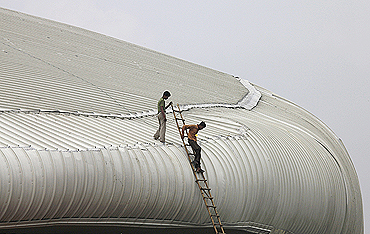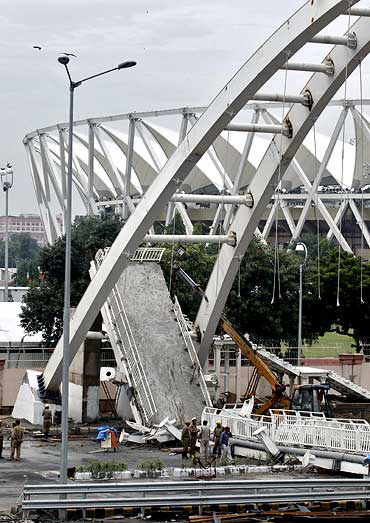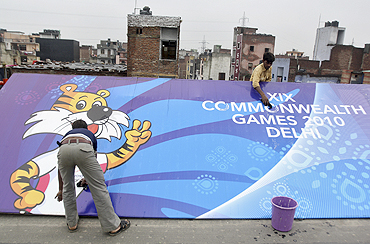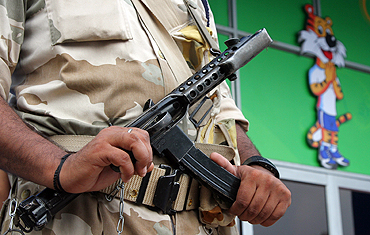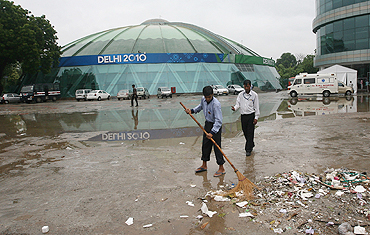 | « Back to article | Print this article |
India's efforts in chaos
'Now call it off!', 'Games in crisis' screamed British tabloids about the forthcoming Commonwealth Games to be held in the Indian capital saying the shoddy preparations for the mega event were a blow to India's pride.
Pictures and reports of the collapse of the bridge near the main Jawaharlal Nehru Stadium and poor living conditions in the Games Village hogged the newspaper space, with the leading daily The Guardian asking 'Does this look ready to you?'
Labelling the Commonwealth Games in Delhi, a public relations disaster, the British media made the comparison saying while China had delivered a first class infrastructure for the Beijing Olympics, India's efforts were in chaos.
Comparisons with China
The sad events in Delhi with a number of nations raising question marks over the health standards and living conditions in the Games Village were accorded lead positions in prime time TV bulletins.
The question marks over the cleanliness standards in the Games infrastructure were interspersed with reports of pull out by three top English athletes including the world triple jump champion Phillips Idowu due to concerns over security.
In a leading article titled 'Wounded Pride and Public Relations', The Independent made comparisons between India's efforts to stage the games and China's spectacular staging of the Olympic Games in 2008.
It said: "It is tempting to make comparisons with China. The stereotype is that efficient China delivers first-class infrastructure and prestige building projects while chaotic India struggles. It is undoubtedly true that China has leapt ahead of its Asian economic rival in terms of the development of transport and energy infrastructure in recent years".
'Delhi CWG sinking further into recrimination'
Other reports said that the Commonwealth Games were 'in crisis', and noted that the event was supposed to showcase to the world the rise of India as a major economic power, but had been compromised by corruption and inefficiency.
In a report from Delhi titled 'Does this look ready to you? Chaos in run-up to Commonwealth Games', The Guardian reported: "This was billed as the moment when India would stride proudly out on to the world stage. But today saw the 19th Commonwealth Games sinking only further into chaos and recrimination".
India's free media will serve its people well
The newspaper, however, listed the many problems that plagued similar world sport events in South Africa, the Athens Olympics, Beijing Olympics and the Vancouver Winter Olympics, and noted that in the end the events were held smoothly.
But while blasting the Organising Committee, the British media still had a pat for India as it said that in the long run, India's free media, rule of law and accountable institutions will serve people better than 'China's brand of authoritarian efficiency'.
It said that comparisons with China can also be misleading. Despite the success of the Beijing Olympics, China's record on public infrastructure is hardly impeccable.
Delhi has abysmal reputation
"A great number of schools in Sichuan province crumbled in the May 2008 earthquake, apparently because corrupt local politicians had instructed developers to cut corners on safety," the report said.
"At least, in India, a noisy free press is able to point the finger at corrupt officials. Those who have attempted to investigate cases of official venality in China often find themselves harassed by the police, or even incarcerated.
And India is not a total basket case when it comes to infrastructure. Delhi, it is true, has an abysmal reputation. But other cities, such as the IT capital Hyderabad, belie the stereotype of a country in which nothing works properly," the British media said.
